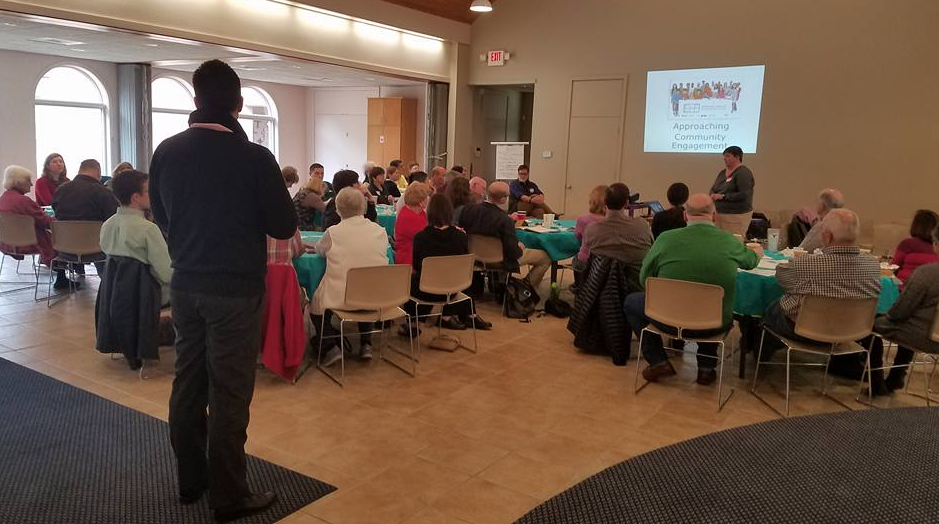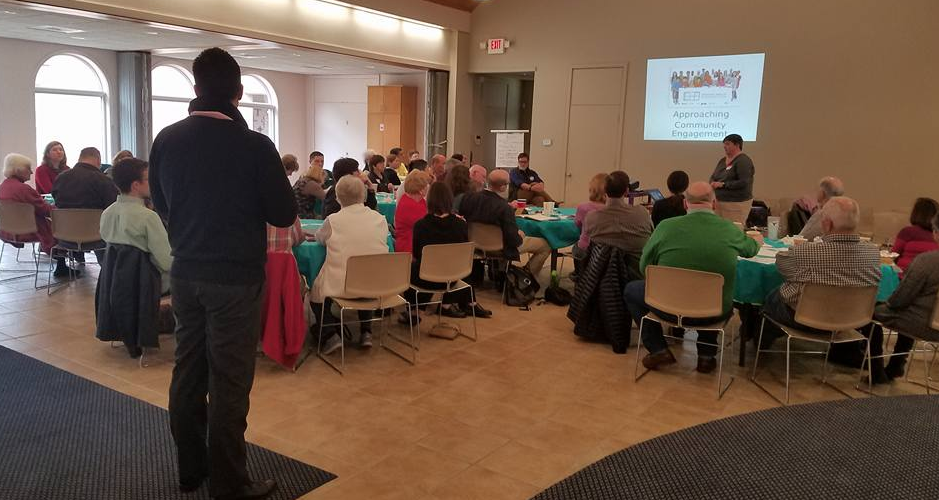
I have learned over the years that there is no substitute for being on the ground, in the communities we serve, alongside the people we want to serve. Our best work in creating healthier communities is done when we build relationships and partner with those most affected by our efforts. However, it’s not possible for EHF to be in all the communities across our 57-county service area. So, one of EHF’s core strategies is to build the ability of our grantees, congregations and other partners to involve ordinary community members in identifying relevant issues and making decisions of how to address them.
At EHF, we believe the primary pathway for community engagement is by working and partnering with leaders, organizations and networks that engage directly with individuals. Moving communities toward change can be difficult, time-consuming work. It’s complicated knowing when, where and how to start. In many cases, community engagement is either not done at all or if community members are involved, there is difficulty navigating relationships and managing expectations.
This is exactly why EHF developed a series of three workshops to help organizations plan and execute successful community engagement efforts. The first of the series, “Approaching Community Engagement” is an introduction to the principles and levels of engagement. The second workshop “Creating a Community Engagement Plan” is dedicated to helping an organization prepare a tailored plan of engagement. And the final workshop “The Community Engagement Check-in” is to determine if the engagement efforts are effective, once they have begun.
Toward the end of 2016, I began leading these workshops around EHF’s 57 counties. At the end of the first workshop, I led an exercise in which participants developed a community engagement plan. Small groups worked together to decide on the community they wanted to work with, why they wanted to work with that community, the level of engagement, and the activities that they would implement.
One common mistake organizational leaders made from these sessions was their tendency to jump straight to fixing a problem and skip right over the community engagement work. Relationships matter and listening to community members before decisions are made is paramount. Better solutions are created when organizational leaders spend the time to better understand the voice of community members and partner with their community members to address the problems.
I share this insight out of personal experience because I have struggled and watched others struggle with this work. Again, there is no simple way of going about community engagement, but we can help. EHF is here to support you in getting those boots on the ground in your community.
EHF’s workshops are designed to assist our grantees and congregations in designing and implementing appropriate community engagement efforts. If you have not taken advantage of our workshops, I hope that you will consider doing so. We’ll help you create plans to align participation goals, promises to the community and engagement activities with those of the community.
Click here to request EHF support for your community organization or coalition
